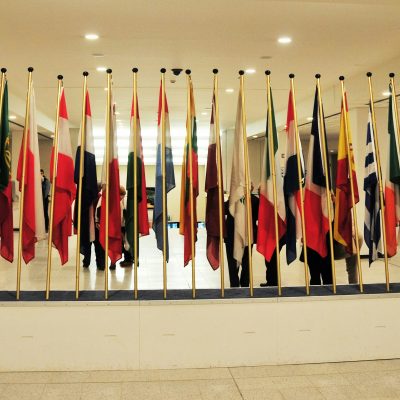Sovereignty, did you say sovereignty?

There are words that carry a policy. Sovereignty is one of them. Used today in many areas such as technology, energy, health or food, it is obviously when we talk about defence policy that it takes on its full dimension, that of a power exercised by the State for the control of its territory and the security of its citizens. To the concept of sovereignty, we logically associate those of independence or autonomy, i.e. access to control over the tools that enable us to ensure our defence without being dependent on a third party.
Significantly, while these concepts primarily refer to nation-states, they are now widely used in Brussels where, having endorsed the less radical principle of the EU strategic autonomy, it is no longer incongruous to talk about European sovereignty. The taboo had already been lifted before 2020 in 3 landmark speeches, Macron’s at the Sorbonne (2017), Juncker’s on the State of the Union (2018) and Draghi’s at the University of Bologna (2019): all three defended the re-conquest by States of their sovereignty through the EU.
This semantic shift naturally raises solid legal debates which we will not go into. Let us simply note that the argument of sovereignty is now used to propose and implement EU policies in sensitive sectors. This was clearly the case for the joined purchase of vaccines during the covid crisis. And these policies, conducted in the name of European sovereignty, are in fact presented a contrario as revealing European sovereignty.
The term is used in several official European Union documents and in the recent Draghi report, and even appears in the title of one of the vice-presidents of the new European Commission (Hanna Virkkunen, in charge of “technological sovereignty, security and democracy”). In Paris, it’s an idea that’s flourishing, with repeated but ambiguous calls from some quarters for French AND European sovereignty.
In terms of defence policy, this question raises the issue of the reality of the dependencies, acknowledged or not, that determine the military capabilities of each party:
Questioned recently in the French National Assembly, the Chief of Staff of the French Armed Forces said, in justifying France’s purchase of German HK416 rifles, that it was “not taking a major risk by deviating from strict sovereignty on this point”. We also recall the French White Paper on defence and national security which, in 2008, introduced the idea of “mutually accepted dependencies” with its three circles of industrial policy.
Two recent developments give particular prominence to the issue of European sovereignty when it comes to defence industrial policy:
- Devoted to European competitiveness, the Draghi report, which focuses part of its recommendations on technological innovation, establishes a structural link with investment in defence: over and above its geopolitical reasons, it is also seen as a condition for preserving value chains and access to cutting-edge technologies (in the image of US policy, which deliberately uses military research as a vector for innovation through the DARPA). With its clear objective of technological sovereignty, the action plan proposed by Draghi emphasises the driving role played by the defence industry, which in return must be more open to European integration if it is to survive. The Draghi report thus highlights the consubstantial link between competitiveness, innovation and military technologies: in short, it underlines the extent to which, where the latter are concerned, sovereignty can no longer be restricted to national prerogatives.
- The negotiations currently taking place in Brussels on the European Defence Industry Program (EDIP), proposed last March by the Commission and financed by the EU to the tune of €1.5 billion, also shed some interesting light. The debate on this text between Member States and in the European Parliament focuses in particular on the concept of European preference: to what extent should this funding be reserved for companies or products controlled within the EU? Translated into concrete terms, this question implies defining precisely how defence equipment should be labelled “EU”. The various players, including industry, had to admit that 100% EU was a fiction and that a certain degree of non-EU content had to be accepted to make products eligible for EDIP (the discussion then shifted to what the maximum acceptable threshold would be). Although somewhat technical, this debate reveals, if proof were needed, the dependence, albeit limited, of European companies on third-party suppliers to produce the equipment ordered from them.
Objectivity dictates, therefore, that the notion of sovereignty when applied to the highly sensitive area of the defence industry should be viewed with some nuance: there is no such thing as absolute sovereignty in this area, whether national or European. And, at the same time, the degree of external dependence is obviously lower when we look at things from a European rather than a national perspective. This observation leads us to conclude that a more vigorous arms industrial policy at EU level would enable the Member States to regain sovereignty in this area that they are unable to preserve by remaining isolated. Of course, this presupposes that European defence budgets are invested exclusively in EU companies and programmes, in accordance with a clear principle of European preference. In this way, France would be putting into practice the 3-circle policy theorised in its 2008 White Paper in a clearer and more tangible way…




